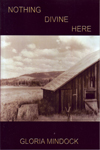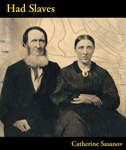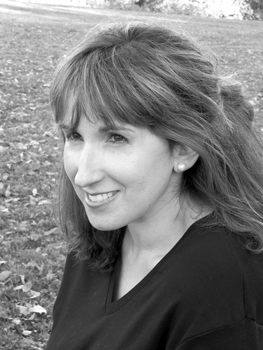|
July, 2005
Aug. 2005
Sept. 2005
Oct. 2005
Nov. 2005
Dec. 2005
Jan. 2006
Feb. 2006
Mar. 2006
Apr. 2006
May 2006
June 2006
July 2006
August 2006
September 2006
October 2006
November 2006
December 2006
January 2007
February 2007
March 2007
April 2007
May 2007
June 2007
July 2007
August 2007
September 2007
October 2007
November 2007
December 2007
February 2008
March 2008
April 2008
May 2008
June 2008
July 2008
August 2008
September 2008
October 2008
November 2008
December 2008
February 2009
March 2009
April 2009
May 2009
July 2009
August 2009
September 2009
November 2009
December 2009
January 2010
February 2010
ČERVENÁ BARVA PRESS NEWSLETTER
Gloria Mindock, Editor Issue No. 53 March, 2010
INDEX
Welcome to the March Newsletter, 2010.
The Červená Barva Press Newsletter has a new look!
We changed the background color (email version) from gray to what you see now.
You will notice a new font being used throughout the newsletter.
This will make it easier for you to read.
Červená Barva Press and Flavia Cosma received a SUR Translation Support Program
Grant from Argentina to publish a poetry book by Luis Raul Calvo from Buenos Aires, Argentina.
Flavia Cosma translated his poetry into English. His book will be published soon. This is very exciting.
For once, Červená Barva Press doesn't have to depend on sales to publish a book!
I am psyched!
Wednesday March 24, 2010
Please join Catherine Sasanov, Martha Greenwald and Gloria Mindock at the Pierre Menard Gallery.
All three of us will be launching our new books.
This will be a very special reading and celebration.
Here is the information for you:
Červená Barva Press Reading Series
Pierre Menard Gallery
10 Arrow St./Harvard Square
Cambridge, MA
Wednesday March 24, 2010
7:00PM, Free
Book signing and Reception to follow

Martha Greenwald's collection, "Other Prohibited Items," was a winner
of The Mississippi Review 2010 Poetry Series. Her poems have appeared
in several journals including Best New Poets 2008, Slate, The
Threepenny Review, Poetry, The Sycamore Review and Shenandoah. A
former Wallace Stegner Fellow, she has received awards from the arts
councils of North Carolina and Kentucky. She currently teaches at the
University of Louisville.

Gloria Mindock is the editor of Červená Barva Press and the Istanbul Literary Review, an online journal based in Istanbul, Turkey.
Gloria will be reading from her new book, Nothing Divine Here (U Šoku Štampa).
She is also the author of La Portile Raiului (Ars Longa Press, 2010, Romania) translated by Flavia Cosma and Blood Soaked Dresses
(Ibbetson Street Press, 2007). She has had numerous publications including Poet Lore, River Styx, Phoebe, Blackbox, Poesia,
Bogg, Ibbetson, WHLR, Arabesques, UNU: Revista de Cultura, Citadela, Aurora, Generacion Abierta and two chapbooks, Doppelganger
(S. Press) and Oh Angel (U Šoku Štampa). From 1984-1994, Gloria was editor of the Boston Literary Review/BLuR. She has been
nominated for a Pushcart Prize, St. Botolph Award, and was awarded a fellowship from the Massachusetts Cultural Council distributed
by the Somerville Arts Council.

Catherine Sasanov's third book of poems, Had Slaves, won the 2009 Sentence Book Award and was a finalist that same year for the
National Poetry Series. She is grateful to Červená Barva Press for being the first to recognize these poems, publishing a chapbook
version of some them, Tara, in 2008. Catherine's other works include Traditions of Bread and Violence (Four Way Books),
All the Blood Tethers (Northeastern University Press), and the libretto for Las Horas de Belén: A Book of Hours,
commissioned by Mabou Mines theater company. She was recently awarded an artist's support grant from the
Ludwig Vogelstein Foundation; it will support a road trip in April to investigate how slavery has been remembered
and misremembered in American culture.
Two new chapbooks have just been released. They are the contest winners for 2009.
To everyone who entered the contest from Nov. 1, 2008-Jan. 31, 2009, please send me an e-mail with your name and address so
I can send you a chapbook. I had help from a volunteer typing in addresses of all those who entered but the volunteer didn't
keep it in the folder I set up. The names went into my snail mail folder. I am truly sorry for this inconvenience.
The volunteer worked so hard for me. I know the volunteer feels bad. These things happen. I should have double checked on things.
Anyway, for the contest that is being judged now, I am typing all the names into a special file myself.
Again, I am very sorry.
In April, Červená Barva Press will be celebrating 5 years!!!!!
We will have special readings and book launches in April.
Stay posted for announcements.

emily dickinson by Irene Koronas
Propaganda Press, 2010
$5.00
Chapbook of abstract poems of or inspired by Emily Dickinson
To order:
Alternating Current
P.O. Box 398058
Cambridge, MA 02139
www.alt.current@gmail.com
www.alt-current.com
Poems from the Left Bank: Somerville, Mass. by Doug Holder
Propaganda Press, 2010
Chapbook of poems about places and sights in Somerville, MA
$5.00
To order:
Alternating Current
P.O. Box 398058
Cambridge, MA 02139
www.alt.current@gmail.com
www.alt-current.com
Gringo Guadalupe by Kevin Gallagher
Ibbetson Street Press, 2010
$10.95
Kevin Gallagher's poetry is a rare synthesis of great poetic traditions that puts particular emphases on
the image and the lyric blended with a uniquely personalized iconoclasticism.
His is a perpetual pursuit to make it new.
- Anastasios Kozaitis
To order: http://www.lulu.com/content/paperback-book/gringo-guadalupe/7590802
King of the Jungle by Zvi A. Sesling
Ibbetson street Press, 2010
$15.00
"To find you, I must navigate a maze of back alleys…" Zvi A. Sesling definitely does this in this beautiful collection of poetry.
These poems are sometimes fragile, sometimes blunt, but lyrical enough to draw us into his world with poetry that reads like
private little laments. We feel his language.
- Gloria Mindock, Červená Barva Press
To order: http://www.lulu.com/content/paperback-book/king-of-the-jungle/8368800


Martha Greenwald's first book of poems, Other Prohibited Items (Mississippi Review Press, 2010), won the Mississippi Review Poetry
Series and was released in January. Her poems have appeared in numerous journals including Best New Poets 2008, Slate,
The Threepenny Review, Poetry, The Sycamore Review and Shenandoah. A former Wallace Stegner Fellow at Stanford University,
she has received awards from the arts councils of North Carolina and Kentucky. She currently teaches at the University of
Louisville.
Martha will be reading in the Cervená Barva Poetry Series at the Pierre Menard Gallery in Cambridge at 7 p.m., March 24th,
and her book will be available there for purchase and autograph. She will be joined by Catherine Sasanov (who conducted this interview),
and Červená founder, Gloria Mindock, in a night of new book releases by the three poets.
How would you describe Other Prohibited Objects to those who haven't yet read the collection?
First of all, thank you for doing this interview with me, and thank you to Gloria Mindock for wanting the interview and asking me
to be in the Červená Reading Series.
I've been thinking about this question for a week, and I think I finally figured out that the reason I was having difficulty answering
is that I have been working on this book, in different ways and in highly altered versions, for a long time. I am at the age when some
poets are more commonly publishing their second, (or even third) book. I am a slow writer, some poems in the book have taken me years
to finish. (The newest poem, "At Bracknell," had been hatching for close to a decade, but I didn't know how to write it until last
summer.) So, although this is my "first book," it feels, to me, like it's part of a process.
And there is another aspect to the book, a back story, that I couldn't have known, or anticipated, when I sent the manuscript to
the Mississippi Review-a few weeks before I was told I had won, my father was hit by a car and killed while on his morning walk. A
tactless person at the funeral said to me, "Now you're an orphan." An ill-timed and inappropriate comment, of course, but there are
a lot of ways in which what this man said resonated deeply. We don't think of 'orphans' as women in their forties. Yet, there are
several poems in the book that are directly or indirectly about both of my parents (my mother died a decade ago) and as I was proofing
and editing the manuscript, I had to continually fight the urge to change tenses in some of the poems, to make the viewpoint reflect
the new 'orphan' that I am. This might feel differently if this was my second or third book-but it is my first, and my father, who
was a dedicated supporter of me and my art, didn't live to see what he had so anxiously awaited. So, in many ways, Other Prohibited Items,
is an extended private and public elegy.
How did you come to poetry in your life? What drew you to writing?
Like many of my writer friends, I had the writer ID as soon as I physically learned to put words on paper. One of my more vivid
childhood memories originates in first grade. I remember being called out into the hall so that my teacher could show the principal
the little girl who wrote and illustrated the story of a Cuban hijacking, told from the first-person P.O.V. of the plane.
I wrote, rather obsessively, and illustrated books all through elementary school, graduating to full-length short stories in
junior high. When I was 14, I went to an amazing place, Buck's Rock Arts Camp, in New Milford, Connecticut. It's still there
and their website indicates its mission is still the same. They take teenagers and their art(s) very seriously. I spent my days
in the Publication Shop where the geeky writer kids took workshops and published literary magazines every few weeks. A lot of my
peers were writing poetry and I gave it a try. I was hooked instantly. It is so long ago and yet I still view that summer as one
of the most important periods in my life.
With so many other things fighting for your attention (motherhood, teaching, the general visual noise of our culture, and all the
shiny, new technological objects and their apps), how do you continue to focus on poetry? Why does it continue to be relevant for you?
Although this may sound obvious, I don't know how not to focus on poetry. I often don't have the time I need for the writing, though,
because I am not someone who can write anywhere, anytime. I do feel, though, that I am a poet who often integrates the 'noise of our
culture' into my subject matter. The title poem of the collection is utterly current, and is, in a way, about how technology has altered
our lives, and about what it has taken away. I have several poems that spring from the experience of motherhood, too. So, I think that
the things that fight for my attention often enter my writing work. It's how I survive.
Tell us a bit about your teaching as you have taught for a number of years now at the University of Louisville. Does it make a
difference to your creative writing students, and the students in your literature courses, that you are a published author
yourself?
I have taught creative writing in various incarnations (adjunct, term faculty) at the University of Louisville for ten years. I teach
all levels of creative writing, and all genres. I am teaching a creative non-fiction class this semester that I love. Sometimes, I
also teach lit classes. Currently, that's a class called "Women in Literature," and I choose to teach it as an introduction to short
fiction by women, focusing initially on Eudora Welty. I adore Welty.
I've consistently had numerous journal publications for years, and I've never perceived that it changed how my students viewed me.
The book, though, may make a difference in another way because I feel more confident and I can already see how that buoys my mood when
teaching. In workshop, where group dynamics and psychology are often as influential as the writing, I would assume that this could be
a beneficial element.
Like many lit courses, "Women in Lit" is classified in a way that qualifies it for a university-wide distribution requirement, so it's
full of people who wouldn't take the course unless they had to. I'm not sure my book matters to them, at all. And to be fair, I can
recall several courses I had to take as an undergrad about which I probably felt the same. However, I do have a few Sports Administration
majors who claim to appreciate Carson McCullers-I take that as a good sign! We had a great discussion last week about her story,
"The Sojourner," viewing it as an example of a piece of fiction that could not be composed in the age of Facebook.
Has it affected your writing at all (and perhaps your moving through the world as a poet) that you have lived in such different
geographic locales and population centers: New Jersey, New York City, Boston, San Francisco, rural Iowa, Durham, North Carolina,
and Louisville, Kentucky?
Absolutely. The places I've lived are inseparable from my poems, and it's probably true that "place" is my main source of inspiration.
I was walking near fossil beds after my father's funeral and I realized something that, oddly, I had never consciously acknowledged
before-I often get ideas when places half resemble the New Jersey of my childhood, although I may be the only person seeing that
likeness. For example, when I moved to Iowa, the landscape felt comforting to me, because Middletown, NJ, was all farms, stables,
and orchards in 1970. But then the unfamiliar appeared in the form of tornadoes and raucous thunderstorms-and entered my poems.
I like finding peculiarities in everyday places. The collection's title poem, "Other Prohibited Items," is set at an airport security
kiosk. I also have several poems that occur in supermarkets, strip malls, fruit markets-places where the mundane is expected and where
we all go regularly. Why shouldn't a Kroger manager's goofy attempt at trying out his beginner's Italian on the intercom be invited
into a poem? I'm there, picking up my daughter's Allegra prescription and he's given me a story. I'm not in Tuscany gazing at a
golden sunset, I'm in Louisville-that is my reality, my muse can be the manager's "Grazia."
I think of jobs as 'place,' too, and so my past employment has entered my poems. I had many jobs as a secretary in my twenties and
thirties, and those offices, and especially my former co-workers, populate many poems in the book. I probably couldn't have functioned
in those jobs unless the actual office was co-existing as an alternate narrative in my imagination. So, I wrote pieces set in offices
long before Ricky Gervais and his brilliant BBC series appeared. I worried for a while that my poems would be seen as too pop-cultural,
or as referencing the TV and film spin-offs that then transpired. But my poems aren't about a specific, concrete office-the setting
is metaphorical, and so I hope they're read/viewed differently.
Is there a question that you wish interviewers would ask you about your writing (Or that you wish they would ask poets in general)?
And if they did ask, what would you answer?
Here's a question:
What are some of the more important (but not poetry specific) influences/muses in your development as a writer?
A selected few of these influences/muses would be:
Weather, no matter where I am and whatever the season.
Sondheim's "Sunday in the Park with George."
Fred Astaire, when he sings.
Two exhibits I saw at the Whitney when I was a teenager: George Segal and Edward Hopper.
My allergies, which are profuse.
In childhood, long summer days spent at the Jersey shore (the true beach, not the current TV trash version).
Medical facts and articles having to do with vision. (My father was an optometrist)
Finding a publisher for one's book can be a daunting task, but you never let that fact discourage you. What advice
would you give poets who may be receiving rejection slips for their book manuscripts right now?
My manuscript changed and changed and changed due to many factors. The biggest hurdle was the physical ordering of the poems.
I believe that when a poet friend helped me re-order them a few years ago, it changed my perspective utterly. There were
connections I somehow couldn't see. I think my main bit of advice would be to have someone you trust look at the book with you,
then be willing to dismantle it and begin again. I took out some dud poems and wrote some new ones that became essential components,
all due to the new order. The book was a finalist in several contests after its 'makeover' and then it was chosen by the
Mississippi Review. I am eternally grateful to that writing friend, to contest judge Dara Wier, and to the editors and staff
in Hattiesburg. It's changed everything.


If you would like to be added to my monthly e-mail newsletter, which gives information on readings,
book signings, contests, workshops, and other related topics...
To subscribe to the newsletter send an email to:
newsletter@cervenabarvapress.com
with "newsletter" or "subscribe" in the subject line.
To unsubscribe from the newsletter send an email to:
unsubscribenewsletter@cervenabarvapress.com
with "unsubscribe" in the subject line.

Index |
Bookstore |
Submissions |
Newsletter |
Interviews |
Readings |
Workshops |
Fundraising |
Contact |
Links
Copyright © 2005-2010 ČERVENÁ BARVA PRESS - All
Rights Reserved
|

